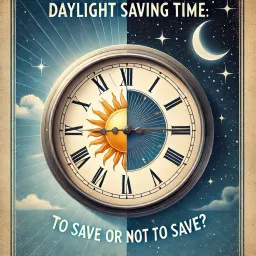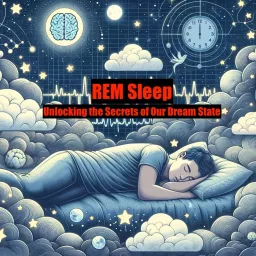Understanding Dementia

The Cruel Reality of Dementia: A Condition That Robs Memories and Challenges Families Dementia, a term that strikes fear into the hearts of many, is a cruel and devastating condition that gradually erodes a person's cognitive abilities, memory, and even their sense of self. It is a broad term encompassing various types of neurodegenerative disorders, each with its own unique characteristics, but all sharing the common thread of progressively impairing mental functions. As the global population ages, the prevalence of dementia continues to rise, making it one of the most significant public health challenges of our time. According to the World Health Organization (WHO), around 55 million people worldwide are living with dementia, and this number is expected to rise to 78 million by 2030 and 139 million by 2050. This insidious condition not only affects individuals but also takes a profound toll on families and caregivers, who bear witness to the slow and painful decline of their loved ones. The Many Faces of Dementia Dementia is not a single disease but rather a collection of symptoms caused by various underlying conditions. The most common form is Alzheimer's disease, which accounts for 60-80% of all dementia cases. Other types include vascular dementia, Lewy body dementia, frontotemporal dementia, and Parkinson's disease dementia. Alzheimer's Disease Alzheimer's disease is the most well-known and prevalent form of dementia. It is characterized by the buildup of abnormal proteins in the brain, leading to the gradual death of brain cells and the erosion of cognitive abilities. Early symptoms often include memory loss, difficulty with language and problem-solving, and changes in mood and behavior. As the disease progresses, individuals may experience severe cognitive impairment, confusion, difficulty with daily activities, and even personality changes. Vascular Dementia Vascular dementia is the second most common form of dementia and is caused by impaired blood flow to the brain, often due to strokes or other cardiovascular conditions. Symptoms can vary depending on the location and extent of the brain damage but may include memory loss, difficulty with decision-making and problem-solving, and changes in behavior and personality. This type of dementia is often associated with risk factors such as high blood pressure, diabetes, and heart disease.
Lewy Body Dementia Lewy body dementia is characterized by the presence of abnormal protein deposits called Lewy bodies in the brain. It often manifests with symptoms similar to Alzheimer's disease, such as memory loss and cognitive impairment, but also includes distinctive features like hallucinations, fluctuations in attention and alertness, and problems with movement and coordination. This type of dementia can be particularly challenging to diagnose and manage due to its complex and varied symptoms. Frontotemporal Dementia Frontotemporal dementia is a less common form of dementia that primarily affects the frontal and temporal lobes of the brain, regions responsible for personality, behavior, and language. Symptoms may include personality changes, impaired judgment and decision-making, difficulty with language, and, in some cases, movement disorders. This type of dementia often affects individuals at a younger age, typically between 45 and 65 years old. Parkinson's Disease Dementia While Parkinson's disease is primarily known for its motor symptoms, such as tremors and difficulty with movement, many individuals with Parkinson's also develop dementia as the condition progresses. This form of dementia often affects cognitive abilities, such as attention, memory, and problem-solving skills. It is estimated that up to 80% of individuals with Parkinson's disease will eventually develop dementia. The impact of dementia extends far beyond the individual affected, as it profoundly impacts the lives of family members and caregivers. As cognitive abilities decline, individuals with dementia become increasingly dependent on others for even the most basic tasks of daily living, such as bathing, dressing, and eating. This shift in roles and responsibilities can be emotionally and physically taxing for caregivers, often leading to burnout, stress, and even health issues of their own. For family caregivers, the emotional toll can be immense. Watching a loved one slowly slip away, losing the very essence of who they are, can be heartbreaking and emotionally draining. The constant demands of caregiving, coupled with the grief of witnessing a loved one's decline, can lead to caregiver burnout, depression, anxiety, and other mental health issues. Many caregivers report feeling isolated, overwhelmed, and unsupported in their caregiving journey. The financial burden of dementia care can also be substantial. As the condition progresses, individuals may require specialized care in assisted living facilities or nursing homes, which can be extremely costly. Even for those receiving care at home, the costs of in-home caregivers, medical supplies, and medications can quickly add up, placing significant financial strain on families. According to the Alzheimer's Association, the total healthcare costs for individuals with Alzheimer's and other dementias in the United States are projected to rgrow enormously by 2050. The Challenges of Caring for Loved Ones with Dementia Caring for someone with dementia requires patience, compassion, and a deep understanding of the unique challenges posed by each type of dementia. Caregivers must navigate a range of physical, emotional, and behavioral changes that can vary greatly from one individual to another, and even from one day to the next. In the early stages of dementia, individuals may experience mild memory loss and difficulty with complex tasks. As the condition progresses, however, more significant changes can occur, including disorientation, confusion, and difficulty with communication and language. Caregivers may need to assist with activities of daily living, such as dressing, bathing, and meal preparation, as well as managing medications and appointments. Behavioral changes can be particularly challenging for caregivers to manage. Individuals with dementia may experience personality changes, agitation, aggression, or even hallucinations and delusions. These behaviors can stem from the neurological changes caused by dementia but can also be exacerbated by factors such as pain, discomfort, or environmental triggers. Caregivers must learn to communicate effectively, manage challenging behaviors, and provide a safe and supportive environment for their loved ones. Providing care for someone with dementia often requires a delicate balance of ensuring safety while also respecting the individual's dignity and autonomy. Simple tasks like bathing or dressing can become complex and emotionally charged experiences, requiring patience, empathy, and a deep understanding of the individual's needs and preferences. The Importance of Support and Self-Care for Caregivers Caring for a loved one with dementia is a demanding and emotionally taxing experience, and it is essential for caregivers to prioritize their own well-being. Neglecting self-care can lead to burnout, depression, and other physical and mental health issues, ultimately compromising the quality of care provided to the individual with dementia. Support systems, whether formal or informal, are crucial for caregivers. This can include respite care services, which provide temporary relief from caregiving duties, or support groups where caregivers can share their experiences, seek advice, and find emotional support from others in similar situations. Many organizations, such as the Alzheimer's Association, offer resources and support programs specifically designed for caregivers.
Additionally, caregivers should make time for self-care activities that promote physical and mental well-being. This may include exercise, meditation, hobbies, or simply taking breaks to recharge and engage in activities that bring joy and fulfillment. Seeking professional counseling or therapy can also be beneficial for caregivers struggling with the emotional toll of their caregiving responsibilities. The Role of Healthcare Professionals and Community Resources While caring for a loved one with dementia is often a deeply personal journey, it is essential to recognize the importance of professional support and community resources. Healthcare professionals, including physicians, nurses, social workers, and counselors, can provide valuable guidance, education, and support throughout the various stages of dementia. Physicians play a crucial role in diagnosing and managing the medical aspects of dementia, including prescribing appropriate medications and monitoring for any potential side effects or complications. Nurses can provide education and support to caregivers, teaching them techniques for managing challenging behaviors and addressing the practical aspects of caregiving. Social workers and counselors can offer emotional support, connect families with community resources, and help navigate the complex legal and financial issues that often arise with dementia care. They can also provide guidance on long-term care planning, advance directives, and end-of-life decisions. Community resources, such as adult day care centers, memory cafes, and support groups, can offer respite for caregivers while also providing socialization and engaging activities for individuals with dementia. These resources can help maintain a sense of community and connection, which is crucial for the well-being of both the person with dementia and their caregivers. Additionally, organizations dedicated to Alzheimer's disease and other forms of dementia, such as the Alzheimer's Association and the Lewy Body Dementia Association, can provide valuable information, resources, and advocacy efforts to support individuals and families affected by these



























![[REDACTED] History [REDACTED] History](https://podcastaddict.com/cache/artwork/thumb/4093402)



